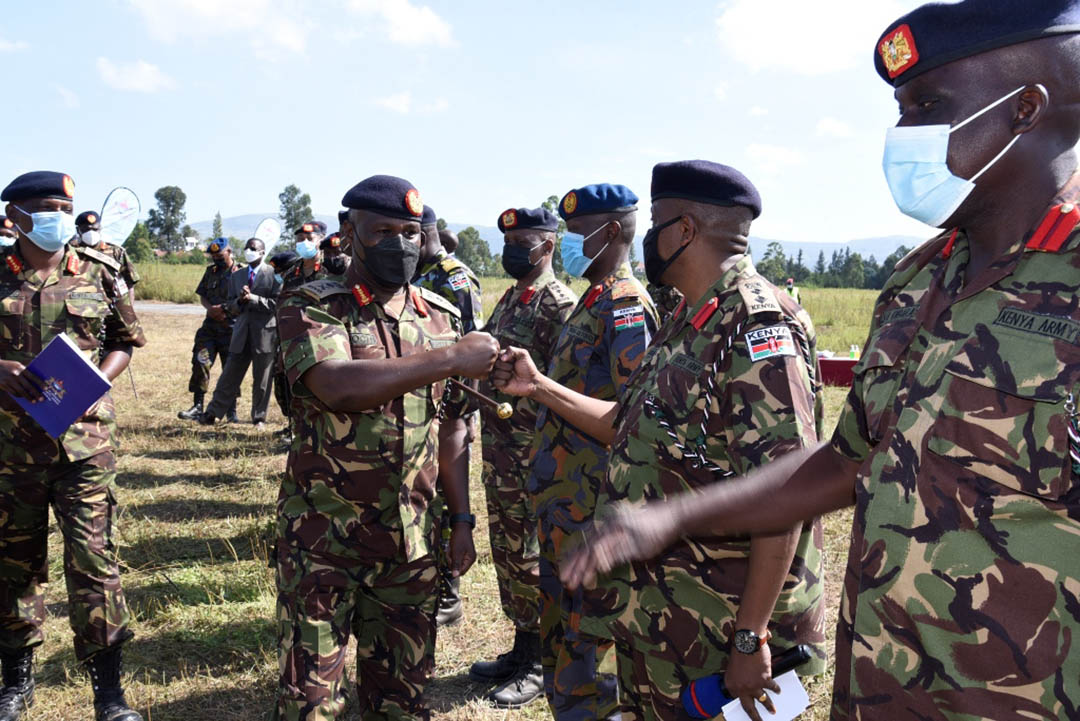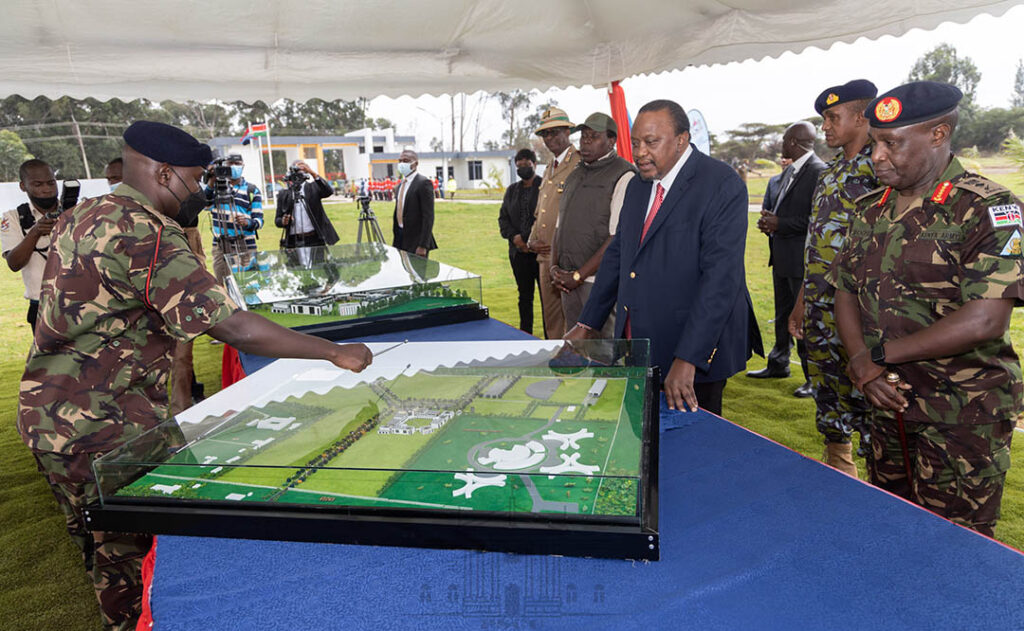ADF STAFF
When officials inaugurated the National Defence University-Kenya (NDU-K) in August, it was more than just the opening of a new school. For those present at the sprawling campus in Lanet, it was the culmination of decades of investment in the country’s professional military education.
Forty years ago, Kenya was the first country in the region to establish a staff college; 25 years ago, it was the first to establish a national defense college. Now, the NDU-K represents another first. It is the first “specialized degree-awarding research institution” in Kenya to train security professionals and civilians. It will be home to the country’s first center for strategic studies, a national think tank where security leaders can search for answers to emerging threats.
Gen. Robert Kibochi, Kenya’s chief of defense forces, said that by investing in military education, the country is working to stay ahead of evolving threats.

“This progression has been informed by one key issue: the thinking that human skills within the Kenya Defence Forces are a critical component in ensuring that the force remains relevant to address itself to the dynamics of a very complex and changing environment,” Kibochi told ADF.
NDU-K is the umbrella institution for seven constituent schools within the country. They are the National Defence College, Joint Command and Staff College, Kenya Military Academy, Defence Forces Technical College, International Peace Support Training Centre, Defence College of Health Sciences, and the National Intelligence and Research University College.
The project was a priority for President Uhuru Kenyatta. After groundbreaking in November 2021, construction crews worked “24/7” to complete it before the end of his term, the Nation reported.
It currently has just under 500 students and will offer courses in specialties including disaster response and cyber security. Its courses will be open to domestic and international students.

Kenyatta said the NDU-K shows that Kenya believes education for the armed forces must be placed on a par with other disciplines.
“In the past the focus has been on non-security-related education with very narrow-minded thinking that higher education was not particularly relevant to the security sector,” Kenyatta said during the August 3 inauguration. “So as part of our broad reforms in the education sector, my administration has had to rethink this view. Because we equally need strategic thinkers even in the security sector.”
Kibochi, who also serves as the NDU-K council chairperson, said his life is evidence of the transformative power of education. Born into modest circumstances in the Rift Valley region of Kenya, he saw joining the military as a way to better himself.
“When we grew up in those days in the rural environment and in tenuous situations, education became the only way to get out of the environment that you were living in,” Kibochi said. “So, some of us believe very strongly that there is a transformative nature in education.”
During his more than 40-year career he has earned a bachelor’s degree, two master’s degrees and, in 2022, he became the first sitting chief of defense forces to earn a doctorate when he graduated from Kenyatta University with a degree in peace and conflict management.
He calls the NDU-K a “game changer” offering this same high-quality education to Kenya’s future security leaders.
“The National Defence University does not only become a force multiplier in terms of knowledge creation; it also becomes an avenue of inquisition where people are able to research at the highest level,” Kibochi said. “This, to me, is important because of the multiplicity of threats that we are having to face, whether those threats are transnational, whether they are related to piracy, terrorism and also pandemics that we are having to face up to. This institution is a critical piece.”
A full interview with Gen. Robert Kibochi, Kenya’s chief of defence forces, will appear in ADF fourth quarter edition themed “Transformation.”

